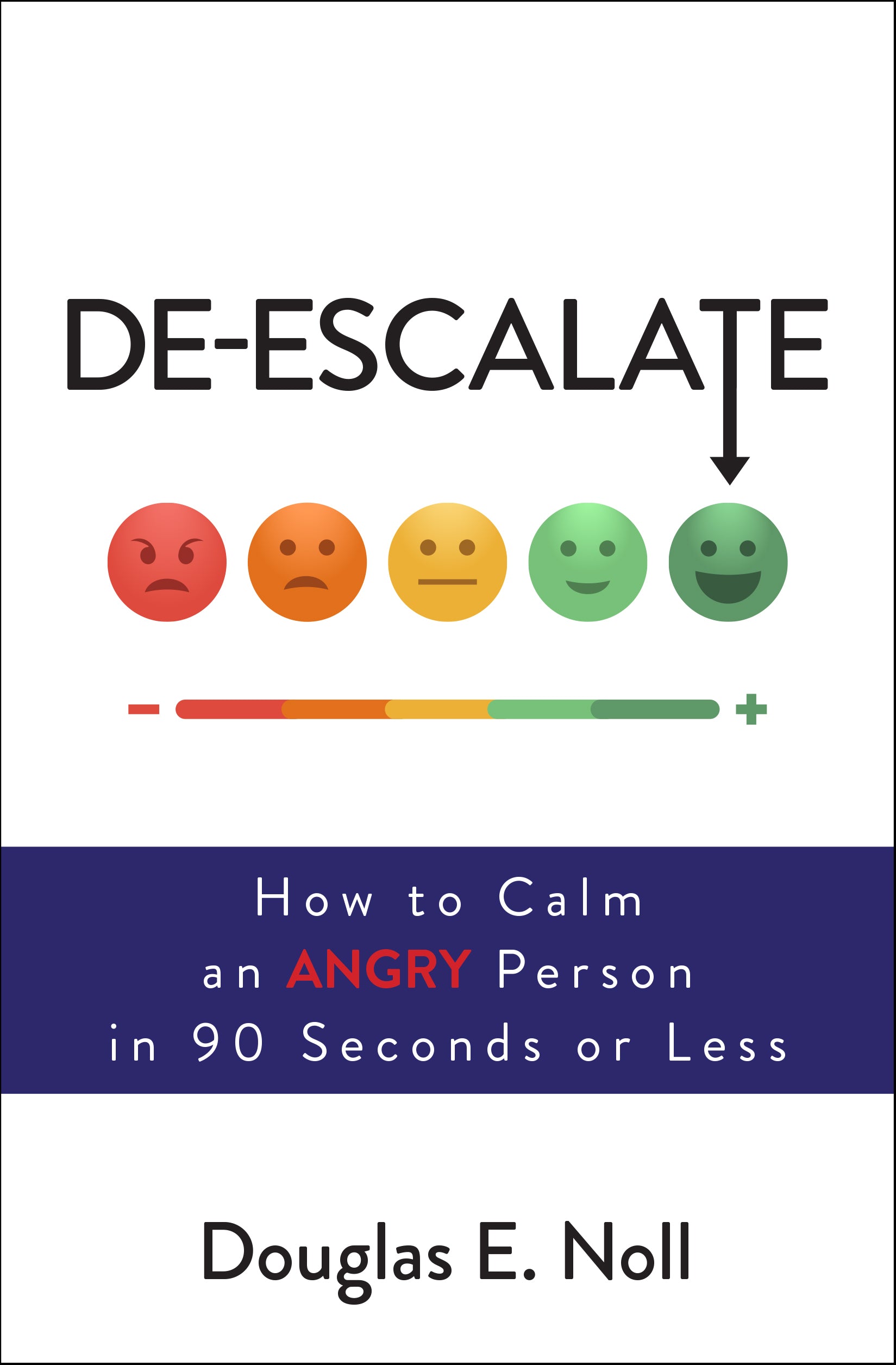Your Cart is Empty
Free Domestic Standard Shipping On Orders Over $100.00 USD
Free Domestic Standard Shipping On Orders Over $100.00 USD
Free Domestic Standard Shipping On Orders Over $100.00 USD
3 min read
De-escalating Upset Children: Becoming an Empathic Listener
Excerpt from De-Escalate: How to Calm an Angry Person in 90 Seconds or Less by Douglas E. Noll.
Affect labeling is a powerful form of empathic listening. Empathy is the ability to experience the emotional state of another human being, so becoming an empathic listener is the process of learning how to read and understand the “emotional data field” of another.
Some years ago, I was working with a group of high-level consultants on their leadership skills. Many of them were engineers, who tend to be critical thinkers who like hard data. I quickly realized that I had to come up with a concept around emotions that would engage them. It occurred to me that emotions are a form of data. The data is fleeting and sometimes ambiguous, but it is still data. In the middle of a workshop, I coined the term emotional data field, and the consultants immediately got it. They took up the challenge of reading the emotions of others as a form of data that could be collected, interpreted, and acted upon, thereby becoming excellent empathic listeners.
When we begin to think of emotions as a form of data, we can understand better what experiences others are having in the moment. The typology, quality, intensity, and duration of emotional experience are bits of information we can access quickly and intuitively if we pay attention. That is the essence of becoming an empathic listener.
We humans do not experience emotions in isolation. My experience has been that emotions show up in layers. Each layer has a depth and quality about it. Part of the problem people have with their emotional experience is that a loud layer will mask a deeper, more profound layer. They can scream and yell in anger but receive no relief because the underlying layer, still hidden, is active. This is especially true for children who have not yet developed adult tools for managing strong emotions.
As an empathic listener, you may wish to affect label through the emotional layers until your children acknowledge what they are experiencing. From the previous scenarios, I track the emotional layers like this:
Layer 1: Anger, rage, frustration
Layer 2: Disrespect, betrayal, unfair (not really an emotion, but it works)
Layer 3: Anxiety, fear, afraid, scared
Layer 4: Grief, sadness
Layer 5: Abandoned, unloved, unworthy
Start with the layer that seems to be presenting first. Usually in escalated situations it’s anger or frustration. After each response, try a different layer. In the beginning, you have to trust your instincts about what emotions might be there. Using the typology above, listen and guess at what might be below the surface. Remember that emotions are a form of data in a field. Sense what your child is processing and go with that layer. Sometimes you have to circle back to an earlier layer before going deeper. Be careful about going too deep too fast in the beginning. Dip your toes in your child’s emotional waters before you leap in headfirst. You will see how the layers work as you gain practice.

De-Escalate: How to Calm an Angry Person in 90 Seconds or Less
Buy your copy from Beyond Words
Discover how to successfully and efficiently calm an angry person or diffuse a volatile situation in ninety seconds or less with this proven and accessible peacekeeping method by self-described “lawyer turned peacemaker” Douglas E. Noll.
We live in an increasingly divided world and most of us have encountered our fair share of aggressive people and difficult confrontations. Fortunately, we now have the tools to become peacemakers and transform emotionally volatile situations and hurt feelings to calm, non-aggressive ones.
Tested on prison inmates, De-Escalate offers a new set of social listening and communication skills, based on the latest findings in neuroscience and meditation. Along with practical exercises and scenario-based examples, each chapter focuses on specific themes, such as dealing with emotionally charged teenagers and frustrated coworkers. Additionally, Noll shares practical tips on how to be civil in an uncivil society.
With De-Escalate, we can bring peace to all facets of life, cultivate healthier relationships, and participate in creating a more caring and compassionate future for us all.
Comments will be approved before showing up.
Exclusive First Looks, Uplifting Events, and New Releases